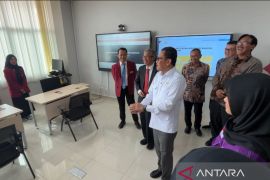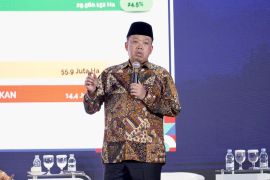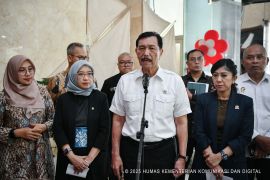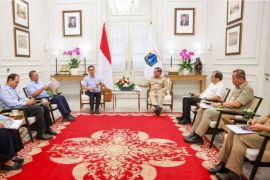Darmin pointed out that the policy package deals with at least eight issues, including funding, taxation, consumer protection, human resource development and education besides cyber security.Jakarta (ANTARA News) - The Indonesian government on Thursday announced the 14th economic policy package that carries a roadmap for the development of e-commerce industry in the country.
"The policy package is aimed at encouraging people all over Indonesia to expand their economic activities efficiently and to connect them to the rest of the world. With this roadmap, they will be able to enhance their business in a better way," Coordinating Minister for Economic Affairs Darmin Nasution said while announcing the package at the Presidential Office, along with Communication and Information Minister Rudiantara and Cabinet Secretary Pramono Anung.
Darmin expressed the hope that the roadmap for the development of e-commerce industry will encourage younger generations to come up with new and innovative products and services.
The roadmap is also expected to induce certainty in business besides facilitating the e-commerce industry. Therefore, with strategic direction and guidance, the electronic-based national trade system can be put in place during the 2016-2019 period, he noted.
The roadmap is also expected to accord priority to and protect the national interests, particularly the interest of small and medium entrepreneurs and startups, he commented.
"It will also help the human resources and e-commerce agents to improve their knowhow. Also, it will provide terms of reference to the government and all stakeholders for determining or adjusting sector-based policies as part of the effort to develop the e-commerce industry," he explained.
Darmin pointed out that the policy package deals with at least eight issues, including funding, taxation, consumer protection, human resource development and education besides cyber security.
Meanwhile, Communication and Information Minister Rudiantara underlined that digital economy has a huge potential in Indonesia.
"The Indonesian digital economy is so huge that all transaction services using digital technology will continue to develop," he observed.
He reminded that the package also covers several provisions to address seven key issues, including human resources and education, access to capital, tax incentives, consumer protection, cyber security, logistics and communication infrastructure. (*)
Editor: Heru Purwanto
Copyright © ANTARA 2016











